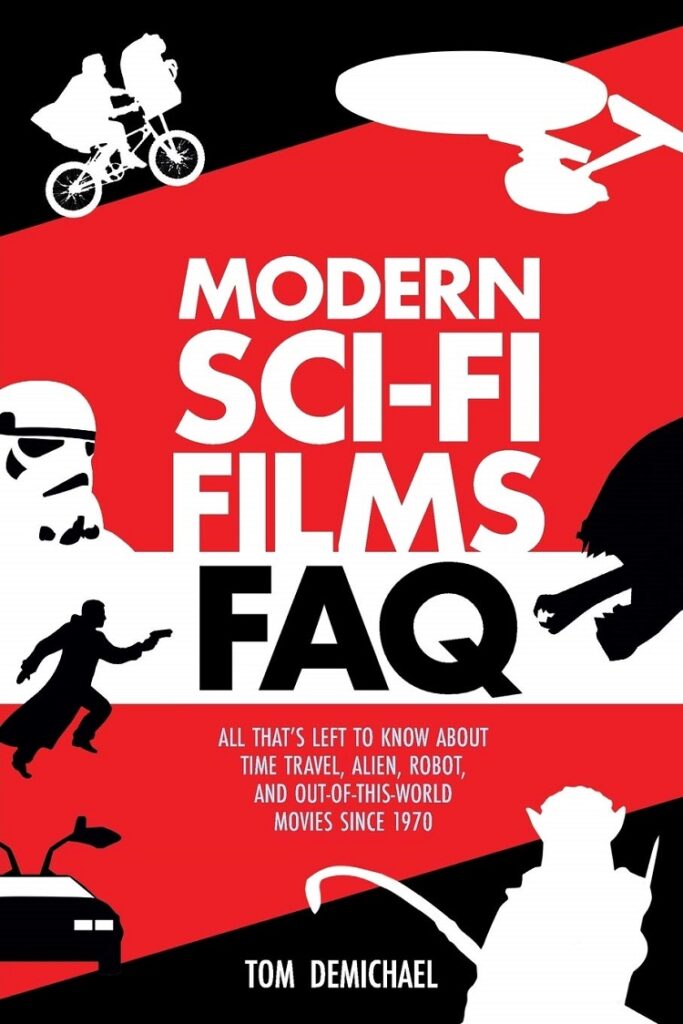
Written by Anastasia Klimchynskaya
The author purports to make a relatively comprehensive guidebook to sci-fi films since the ’70s- with the caveat, of course, that he gets to choose which sci-fi movies are significant, and which to include. That’s his prerogative, of course, but it makes the book a bit unhelpful.
This book (which isn’t really an FAQ – it’s not in a question and answer format) – is divided into several sections: an introduction, which includes biographies of important science fiction writers, and then a number of chapters about movies of various types (space travel, time travel, virtual reality, etc.)
Though some sections are quite informative (the section, for example, on The Matrix, is lengthy and contains a number of facts and tidbits that I hadn’t known) the majority of the book leaves much to be desired in the information it provides on each film – especially in this day and age, where it’s much easier to look up a film’s release date via Google than to flip through a book.
Furthermore, even if the author does leave the choice of films to himself because he’s the author (again, his prerogative), his choice of films makes the usefulness of this book…well, not very useful.
For example, he includes the first Star Trek film, though the section on it is woefully short, talking about the difficulties of getting Star Trek on the air again; he does not include anywhere in his book the second Star Trek film, The Wrath of Khan – the one largely accepted to be the best one, and the one which is significant in the history of the Star Trek franchise. The section on Star Wars, too, is woefully short, with the information on “A New Hope” making barely a page – and with the ambiguous phrasing that the first Star Wars film has the subtitle “A New Hope,” laregely ignoring the fact that that was added much, much later – when Lucas realized that he could make a series of films and that Star Wars would not be a standalone film but the first of many.
Furthermore, in his section on significant sci-fi authors and their biographies, he includes only men; it’s strange: he admits that Mary Shelley pretty much invented sci-fi, but that unfortunately there have been more male than female sci-fi writers (and in terms of fame and Hugo winners, that’s perfectly true). There are, however, a number of female sci-fi authors that really should have made the cut: Mary Shelley’s Frankenstein, for example, spawned enough films to merit inclusion, and Ursula K. Le Guin was also (and remains) a fundamental author in the sci-fi genre. Not to mention the constant omissions of contributions by female writers (such as Star Trek‘s Dorothy Fontana) to many of the films.